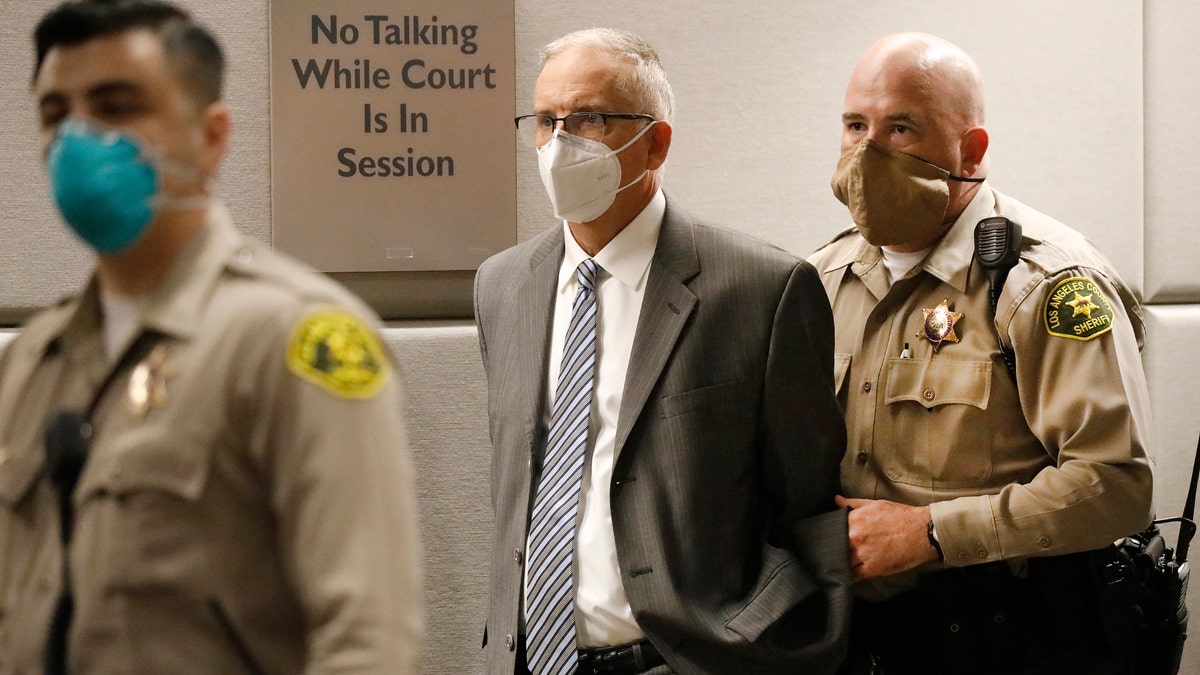Fox News Flash top headlines for October 12
Fox News Flash top headlines are here. Check out what's clicking on Foxnews.com.
The lawyers representing dozens of women who claim Dr. James Heaps, a former UCLA gynecologist facing 20 felony charges and dozens of civil lawsuits, say their clients set to take the stand this week during a preliminary hearing are anxious – and somewhat terrified – at the notion of seeing him, but understand that “they are the voice for so many women.”
“It’s a big ask,” Jennifer McGrath, one of the attorneys representing the women, told Fox News. “We are amazed by their strength, and they are the voice for so many women who have been affected by this – some of whom really don’t have their own voice and sadly he preyed upon people who have their vulnerabilities.”
FORMER UCLA GYNECOLOGIST FACES SEXUAL BATTERY CHARGE AS SCHOOL LAUNCHES PROBE: REPORT
Heaps is accused of preying upon dozens of his patients, including women who had been recently diagnosed with cancer or suffered from cognitive issues. Ellen Carter, one of Heaps accusers, told ELLE that he diagnosed her with a genital autoimmune skin disorder and said it would be fatal unless she came to him for treatment. Carter claims his treatment plan included visits to his office every three months for invasive exams, but eight years, later she discovered the diagnosis was a lie and a ruse to get her back into his office.
“For so long I chalked it up to being a silly woman who didn’t understand his methods,” Cater told ELLE. “Looking back, I should have known.”

UCLA Gynecologist Dr. James Heaps is taken into custody on Aug. 3, 2020, as he appears in Los Angeles Superior Court where additional charges were filed against him. (Al Seib / Los Angeles Times via Getty Images)
Darren Kavinoky, another attorney on the case, said one of his clients was previously hit by a car and while she lost sensation in her lower limbs, she was able to feel pressure. Kavinoky told Fox News that once Heaps discovered this, he “increased the pace of her visits, and his abusive behavior really ticked up.”
Heaps, who is accused of sexually assaulting patients between 2011 and 2018, has previously pleaded guilty and denied any wrongdoing. He was under investigation after a patient complained as early as 2017, but the public was not notified of the allegations and he was still allowed to see patients up until his retirement in June 2018.
DUTCH GYNECOLOGIST FATHERED AT LEAST 17 KIDS WITHOUT TELLING PATIENTS
“The recent criminal charges filed against Dr. James Heaps, a former UCLA Health employee, are very disturbing,” a June 2019 statement posted to UCLA Health’s website states. “In 2018, UCLA investigated Dr. Heaps for sexual misconduct and improper billing practices. We reported him to the Medical Board of California and the U.S. Department of Health & Human services Office of Inspector General (OIG) and law enforcement. We also informed Dr. Heaps that his employment was being terminated, after which he announced he was retiring.”
"The statement also apologizes on behalf of Heaps, and says as an institution we recognize that we must do more to provide the safe, supportive and respectful environment our community expects and deserves. Sexual harassment and sexual violence are unacceptable. Such behavior represents an inexcusable breach of the physician-patient relationship. UCLA is committed to holding violators accountable.”
Some of the patients represented by McGrath and Kavinoky say a female chaperone was in the room during their alleged assaults, which should have prevented it from ever taking place. Part of the issue, the lawyers claim, is that the so-called witness was not properly trained to recognize inappropriateness, or was employed by Heaps.
“One of the clear issues that UCLA has even acknowledged in internal investigations that were released to the public was definitely a culture of fear about making reports – fear of loss of employment or retaliation,” McGrath said, of the chaperone program. “That’s their boss – that’s who they work for but they’re supposed to be safeguarding women and making sure that nothing goes on that’s inappropriate but they’re really constrained in doing that.”
CLICK HERE TO GET THE FOX NEWS APP
McGrath said through the lawsuits that they hope to advocate for and establish guidelines for independent, circulating chaperones who go through proper channels of training to better serve patients.
“The power imbalance and lack of independence really puts women at risk over and over again,” Kavinoky said.









































